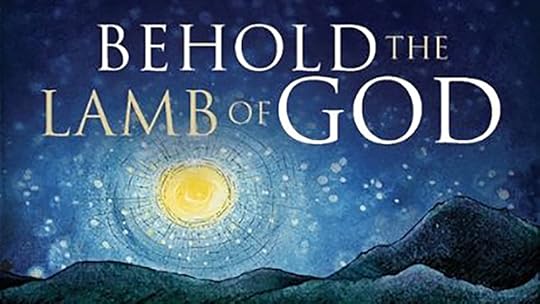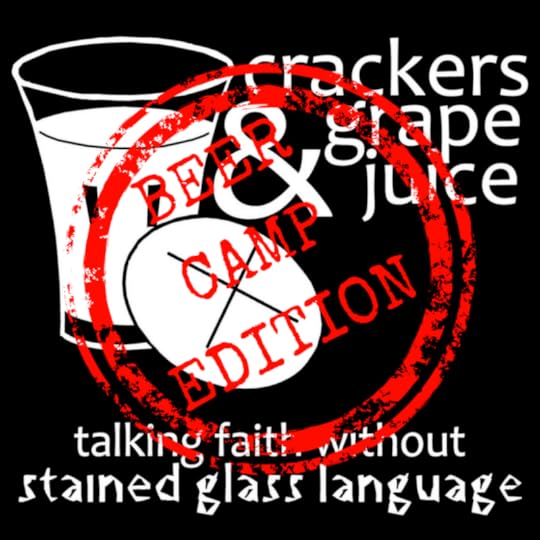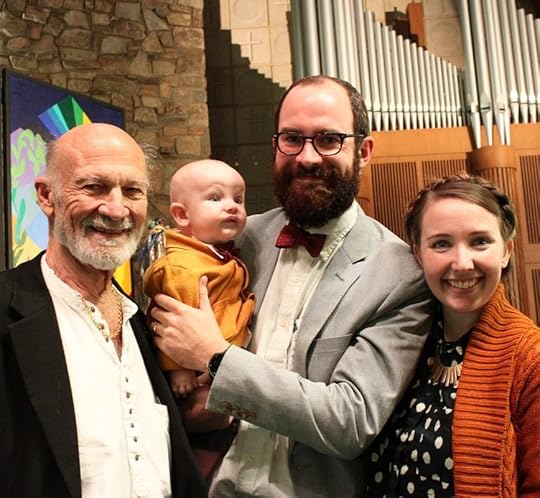Jason Micheli's Blog, page 149
January 11, 2017
God Save Us from Timid Christians
In our culture, the one truth imposed upon almost everybody is that you never impose your truth on others, especially your moral or religious truth.
But imposing is not the same thing as proposing.
Someone on Golgotha responds to Jesus’ ‘I thirst’ by holding up a sponge soaked with sour wine on a branch of hyssop.
Whoever did that for Jesus, it’s an odd thing to do.
Hyssop is a small, bushy plant. It looks like thyme or marjoram. It’s not a very strong plant. You wouldn’t look at it and think it could bear the weight of a sponge soaked with wine.
So why use it? Why at the cross? Why not a stick or a pole or a sword?
In the Old Testament, the Book of Exodus, hyssop is used to sprinkle the blood of the Passover lamb on the doorposts of the Israelites; so that, when the angel of death passed over their homes they would be spared judgment.
Just as Moses used hyssop and lambs’ blood to seal that first covenant so now does that same plant and Christ’s blood seal a new one. There’s more going on at the cross than the fulfillment of a Psalm or two.
At the beginning of the Gospel, John the Baptist meets Jesus and declares: ‘Behold, the Lamb of God that takes away the sins of the world.’
And earlier in this same chapter, when Jesus is judged by Pilate it’s at noon. The very same hour that thousands of passover lambs are slaughtered in the Temple.
And when Jesus is dying on the cross his leg bones are not broken- even though that was the Roman practice. His bones are not broken just as the bones of the passover lamb are not broken.
And when Jesus says he’s thirsty, he’s brought blood-red wine dripping from a branch of hyssop- the same plant that marks the people whom God will save.
When Jesus says ‘I thirst’ it’s not to fulfill this scripture or that biblical passage.
It’s to fulfill everything.
In the Book of Revelation, Jesus is called ‘the lamb of God slain from the foundation of the world.’ According to Matthew’s Gospel, Jesus’ cross makes visible ‘what has been hidden since the foundation of the world.’ The blood of Jesus, says Luke, ‘makes up for the blood of all the prophets shed from the foundation of the world.’ And St Peter, in his first letter, writes that we are ransomed by the blood of Christ and all of this was ‘destined since before the foundation of the world.’
The New Testament is unanimous: there is nothing impromptu or ad hoc about what happens on the cross.
When Jesus says ‘I thirst’ everything God has ever intended is at last coming together. It’s just two words: I, thirst. But it’s everything. And, if you’ve been paying attention and can connect the dots, it CLAIMS everything.
If this Gospel is true, it’s not simply true for me or true for you.
When we get to the cross, Christians have to bite the bullet and go against the cultural grain.
God save us from people who bully their beliefs on others, but God save us from Christians who are so nervous about the claims of the cross that they never speak about Jesus or act as though he mattered to anyone but themselves.
Now I know what you’re going to say: Who are we to say that our truth is superior to the truths others live by?
And that’s a good question, if it’s question of ‘our’ truth. But when you get to the cross, the claim of the Gospel is, simply, that it’s the truth. It’s the true story about the world and everybody in the world.
It’s the truth that from before creation began the heart of God has been bent towards the cross and that in Jesus’ self-giving love on the cross we witness as much of God as there is ever to see. And what we see there, what we see there on his cross, is that God is thirsty. Unquenchably thirsty.
For us.
For all of us.
And I know- this all sounds like a terrifically arrogant assertion.
Unless it’s true.
This exegetical rant brought to by a conversation we recently had on the podcast:
Follow @cmsvoteup

January 10, 2017
The Politics of Jesus’ Baptism
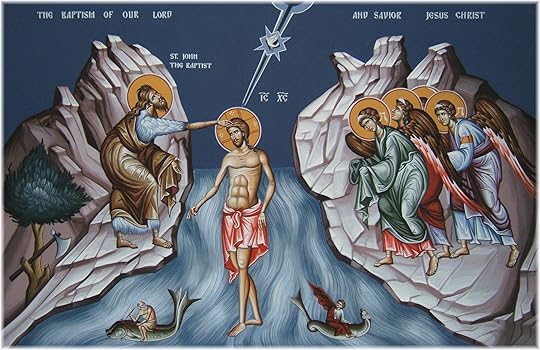 The other day marked the Baptism of the Lord on the liturgical calendar, reminding me of how 10 Years ago I was at a funeral home in Lexington, Virginia for the visitation hours of a funeral I would celebrate the next day. As I usually do at funeral homes, I wore my clergy collar, which costumes me, to Christians and non-Christians alike, as a Catholic priest. When you’re a pastor, visiting hours at a funeral home are nearly as painful as parties or wedding receptions. There you are, trapped in a room full of strangers who desperately do not want to talk to a professional Christian.
The other day marked the Baptism of the Lord on the liturgical calendar, reminding me of how 10 Years ago I was at a funeral home in Lexington, Virginia for the visitation hours of a funeral I would celebrate the next day. As I usually do at funeral homes, I wore my clergy collar, which costumes me, to Christians and non-Christians alike, as a Catholic priest. When you’re a pastor, visiting hours at a funeral home are nearly as painful as parties or wedding receptions. There you are, trapped in a room full of strangers who desperately do not want to talk to a professional Christian.
Even worse are the people who do, and you’re forced to plaster a fake smile on your face as someone tells you about the latest Joel Osteen book. So there I was, making the rounds, making small talk, when this middle-aged man in a too-tight polo shirt and a Dale Earnhardt belt buckle, shook my hand, called me ‘Padre’ and then proceeded to ask me if I had read Dan Brown’s latest bestseller, The Da Vinci Code.
“No, I haven’t read it” I lied. “What’s it about?”
He went on to tell me in breathless tones the now familiar fantasy that “the real Gospel message” was politically subversive and had been suppressed by the Church and by Caesar, that the Gospels as we know them are redactions, edited to support the status quo and consolidate the authority of the Empire.
“Sounds fascinating” I lied.
“Oh, it is- and the truth is kept from people today by a secret group called Opus Dei, ever heard of them?”
“Heard of them?” I whispered. “Don’t tell anyone, but I’m actually a member.”
“Well, then you should definitely read it” he said without a trace of irony.
“Tell me,” I asked, “have you actually read the Gospels?”
He didn’t blush.
He just said: “I’ve seen the Mel Gibson movie.”
Nonetheless, he wasn’t entirely incorrect.
Jesus was/is political. Jesus was/is subversive. Jesus was/is revolutionary. You don’t get sent to a cross for being a spiritual teacher or saving souls for eternal life.
He was wrong though to imagine this subversive message is not to be found in the Gospels. It’s all over the Gospels, from beginning to end. That’s why Christians were persecuted for hundreds of years.
For example-
Take Mark 1, Jesus’ baptism the story on the liturgical calendar this week. As Jesus comes up out of the water, Mark says the sky tears violently apart and the Holy Spirit appears as a dove and descends into Jesus. Now remember, Mark’s writing to people who knew their scripture by memory. And so when Mark identifies the Holy Spirit as a dove, he expects you to know that no where in the Old Testament is the Spirit ever depicted as such.
Instead Mark expects you to remember that the image of a dove is from the Book of Genesis, where God promises never to redeem his creation through violence. Mark expects you to know that applying the image of a dove to the Holy Spirit means something new and different. And keep in mind, Mark’s Gospel wasn’t composed for us but for the first Christians, still living right after Jesus’ death in the Empire.
So when Mark depicts the Holy Spirit as a dove, he expects those first Christians to think immediately of another, different bird.
The Romans, Mark assumes you know, symbolized the strength and ferocity of their Kingdom with the King of the birds: the eagle.
It’s right there: Dove vs Eagle.
A collision of kingdoms- that’s what Mark wants you to see.
And that’s not all.
Because the very next verse has God declaring: ‘You are my Son, the Beloved, with you I am well-pleased.’
That’s a direct quotation from Psalm 2, a psalm that looks forward to the coming of God’s Messiah, who would topple rulers from their thrones and be enthroned himself over all the kingdoms of this world.
Mark expects you to know Psalm 2.
Just as Mark assumes you know that the prophet Isaiah quotes it too when God reveals to him that the Messiah will upend kingdoms not through violence but through self-giving love.
Mark shows you a Dove.
And Mark tells you Beloved Son.
And then after his baptism, the very first words out of Jesus’ mouth are about the arrival of a new kingdom, God’s Kingdom.
And next, the very first thing Jesus does is what any revolutionary does, he enlists followers to that Kingdom. Not soldiers but the poor.
Skeptics will tell you that you can’t trust the gospels because the radical, revolutionary message of the “historical” Jesus isn’t there, that it’s been expunged. That the Gospels you have have been rendered safe and sanitized for the status quo.
But from the very first chapter of Mark all the way through to the first Christian confession of faith- ‘Jesus Christ is Lord (and Caesar is not)-’ the Gospel is politically subversive from beginning to end.
As Paul says, Jesus’ obedience to God’s Kingdom, all the way to a cross, unmasked the kingdoms of this world for what they really are and, in so doing, Christ disarmed them.
Those who choose to believe the political message of the gospels has been expunged or obscured make the mistake of assuming that the only revolution with the power to threaten the status quo and change the world is a violent one.
Follow @cmsvoteup

January 7, 2017
Episode 69: Danielle Shroyer- Why You Don’t Need Jesus

Or so Jason leads in he and Morgan’s conversation with Danielle Shroyer about her new book.
Original sin, as descried by Danielle Shroyer is the ‘red sock’ in our theological laundry. In her new book, ‘Original Blessing, Putting Sin in Its Place’, Shroyer explores how we are not born separated from God as God has chosen fidelity over separation. We are not separate from God, and if we are, it’s on our end.
You can find her book here.
As we slide into 2017 we’ve already got a episodes lined up for you waiting to be edited and posted with J. Daniel Kirk, Jeffery Pugh, Alex Joyner, and Mandy Smith.
In the coming weeks we’re recording episodes with the likes of Addison Hodges Hart, Ched Myers, Amy Butler, Diana Butler Bass, Stanley Hauerwas, and Scot McKnight. And some more Fleming too! Stay tuned and thanks to all of you for your support and feedback. We want this to be as strong an offering as we can make it so give us your thoughts.
Last chance: The Cracker & Grape Juice team will be part of Home-brewed Christianity’s Theology Beer Camp this January in L.A..
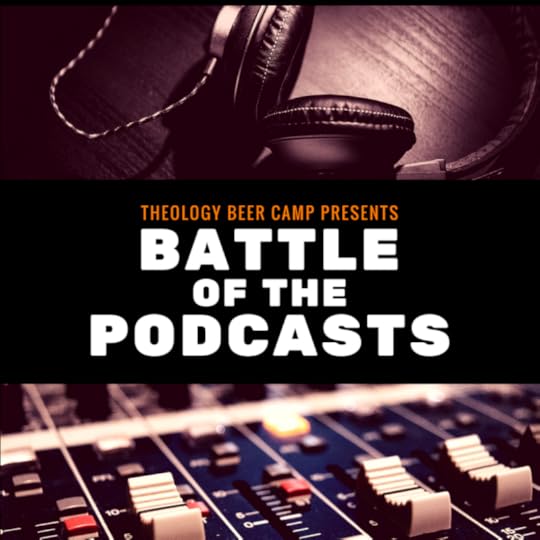
Want to join us?
All you need to do is head over to theologybeercamp.com, click the button to buy tickets, and use the discount code below to receive $100 off:
BLITZEN4JESUS
But this discount will only be good through Christmas!
Be on the lookout for future episodes with Colby Martin and Mandy Smith.
You can download the episode and subscribe to future ones in the iTunes store here
We’re breaking the 1K individual downloaders per episode mark.
Help us reach more people:
Give us 4 Stars and a good review there in the iTunes store.
It’s not hard and it makes all the difference.
It’ll make it more likely more strangers and pilgrims will happen upon our meager podcast. ‘Like’ our Facebook Page too. You can find it here.
Oh, wait, you can find everything and ‘like’ everything via our new website: www.crackersandgrapejuice.com
If you’re getting this by email, here’s the permanent link to the episode.
Follow @cmsvoteup

January 6, 2017
Epiphany: When It Comes to Understanding Jesus, Worship Comes First
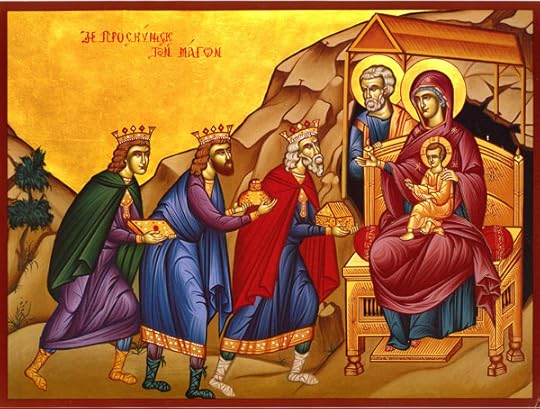 It’s a strange-sounding word: homage.
It’s a strange-sounding word: homage.
It’s a word that feels as though it belongs dressed up in period costumes, a word that could be found in an heirloom bible.
Isaiah’s vision of God’s light intruding upon the darkness comes at a moment in Israel’s story when all the promises of God seemed like broken memories. Not unlike the time when King Herod rules Israel and Caesar Augustus issues his decree for a census.
The prophet Isaiah foresaw a time when God’s light would shine bright and clear not just to those within the covenant but to those far outside it. A time when a caravan of nations would travel to the Promised Land to present this God with gifts and to pay him ‘homage.’
That’s how the Hebrew in Isaiah 60 puts it: homage.
St. Matthew, in his Nativity story, tells of this prophecy being fulfilled some 500 years later in the journey of the magi. According to the hymn, these star-followers were “kings,” leaders of the gentile world coming to honor the King of Kings. According to that same hymn, there are three of these “kings.” According to Christian tradition they have names: Melchior, Gaspar, and Balthasar.
And according to the poet TS Eliot, after having encountered the baby in Bethlehem, these star-followers returned home, “no longer at ease” in the world they had previously known.
Tradition has done much with the magi, but Matthew is mum about all of that.
Matthew doesn’t tell us much about the magi but he is clear and emphatic about why they’ve come: “Where is the child who has been born King of the Jews?” they ask the scholars and priests in Jerusalem, “For we have seen his star in the East, and we have come to pay him homage.”
And when they arrive at the manger, before they give him gold, before they give him frankincense, before they give him myrrh- they drop down onto their knees and they give him homage.
Every Christmas season I like to peruse the newsstand magazines- weeklies like Time and Newsweek– to read their obligatory cover stories about Christmas.
Usually the articles promise new discoveries and have provocative titles like: ‘Was It Really a Silent Night?’ ‘Who Was Jesus’ Real Father?’ or ‘The Christmas Story the Church Doesn’t Want You to Know.’
A couple of weeks ago I was browsing the newsstand at Barnes and Nobles, and I came across a story that featured Richard Dawkins giving his thoughts on Christmas.
Dawkins, as you may already know, is an Oxford biologist and something of a rabid atheist. He’s also the author of the bestseller, The God Delusion.
So who wouldn’t want his thoughts on Christmas?
I flipped through the article and a few of Dawkins’ Christmas comments caught my eye.
“I participate for family reasons,” says Dawkins. “With a reluctance that owes more to aesthetics than atheistics…so divorced has Christmas become from religion that I find no necessity to bother with euphemisms such as holiday season…understanding full well that the phrase retains zero religious significance, I unhesitatingly wish everyone a Merry Christmas.”
Wow, he’d be a kick-ass party guest, wouldn’t he?
Richard Dawkins is by any academic or intellectual measure a wise man. He may understand much about a great many things that would leave my head spinning. Yet, I don’t think he understands- I don’t think he knows much about that word.
Homage.
Matthew calls them “wise” men so it’s easy for us to forget that the magi don’t know any scripture. When they follow the star to Jerusalem, the magi have to ask the city’s priests and scholars what the star means.
Matthew calls them wise men, but they don’t know what Messiah means. They don’t understand the ways in which this Christ child is already and will be later a threat to the ways things are and to the powers that be. When they approach the manger in Bethlehem the true identity of the baby inside is still very much a mystery to them.
That doesn’t stop them, though, from paying him homage.
They don’t let what they don’t know, what they still have questions about, what they still don’t understand- they don’t let all that keep them from giving him homage.
Their journey, their visit, Christmas- it was about more than gift-giving. It was about more than paying their dues or finding the answers to their questions.
It was about homage. It was kneeling and bowing and submitting. Worship.
It was an act of humble commitment. A commitment that came with the expectation of servant-hood.
Before they give their gifts, before they understand who he is or what he means for the world…they kneel before him, Immanuel- God with us, and they give him their lives.
They give him homage.
That’s what makes them wise.
Knowing God, being close to God- it’s not so much about understanding or knowing the scriptures or being a religious insider. It’s about giving homage.
When it comes to approaching the manger, it’s not about first having all the answers. It’s not about getting your junk in order before you a take a step closer. When it comes to Jesus, worship comes first.
What I mean is…
There are things about God you can only understand once you’ve given him your life.
I know that sounds counter-intuitive. I know someone like Richard Dawkins would say that it’s intellectually dishonest. I also know it’s true.
It’s almost an impossible thing to do, to hand over your whole self to Christ. It’s almost impossible, but it’s easier than waiting for all your doubts to be erased. It’s easier than remaining who you are and living for yourself only.
It’s almost impossible but it’s, entirely so, wise.
Follow @cmsvoteup

January 5, 2017
Episode 68: Thomas Jay Oord – Suckling at Jesus’ Teet
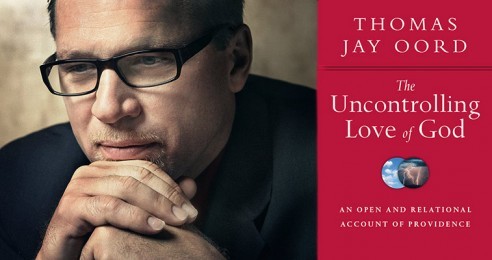 Is juice for Jesus’ blood or water for Jesus’ sweat the better beverage vehicle for Eucharist? Or how about milk? Does atonement mean we suckle at the breasts of Jesus who is our life? These questions and other asides follow in the conversation Taylor Mertins and I shared with Thomas Jay Oord about his new book The Uncontrolling Love of God.
Is juice for Jesus’ blood or water for Jesus’ sweat the better beverage vehicle for Eucharist? Or how about milk? Does atonement mean we suckle at the breasts of Jesus who is our life? These questions and other asides follow in the conversation Taylor Mertins and I shared with Thomas Jay Oord about his new book The Uncontrolling Love of God.
And, in truth, breastfeeding from Jesus is less bothersome to me than process theology. All the same, Thomas was a great guest and his book is great too. You can check it out here.
As we slide into 2017 we’ve already got a episodes lined up for you waiting to be edited and posted with Danielle Shroyer, J. Daniel Kirk, Jeffery Pugh, Alex Joyner, and Mandy Smith.
In the coming weeks we’re recording episodes with the likes of Addison Hodges Hart, Ched Myers, Amy Butler, Diana Butler Bass, Stanley Hauerwas, and Scot McKnight. And some more Fleming too! Stay tuned and thanks to all of you for your support and feedback. We want this to be as strong an offering as we can make it so give us your thoughts.
Last chance: The Cracker & Grape Juice team will be part of Home-brewed Christianity’s Theology Beer Camp this January in L.A..

Want to join us?
All you need to do is head over to theologybeercamp.com, click the button to buy tickets, and use the discount code below to receive $100 off:
BLITZEN4JESUS
But this discount will only be good through Christmas!
Be on the lookout for future episodes with Colby Martin and Mandy Smith.
You can download the episode and subscribe to future ones in the iTunes store here
We’re breaking the 1K individual downloaders per episode mark.
Help us reach more people:
Give us 4 Stars and a good review there in the iTunes store.
It’s not hard and it makes all the difference.
It’ll make it more likely more strangers and pilgrims will happen upon our meager podcast. ‘Like’ our Facebook Page too. You can find it here.
Oh, wait, you can find everything and ‘like’ everything via our new website: www.crackersandgrapejuice.com
If you’re getting this by email, here’s the permanent link to the episode.
Follow @cmsvoteup

January 4, 2017
“Trinity” is No Less and No More Mysterious than “God”
 I’ve been working on writing a catechism, a distillation of the faith into concise questions and answers with brief supporting scriptures that could be the starting point for a conversation. The reason being I’m convinced its important for the Church to inoculate our young people with a healthy dose of catechesis before we ship them off to college, just enough so that when they first hear about Nietzsche or really study Darwin they won’t freak out and presume that what the Church taught them in 6th grade confirmation is the only wisdom the Church has to offer.
I’ve been working on writing a catechism, a distillation of the faith into concise questions and answers with brief supporting scriptures that could be the starting point for a conversation. The reason being I’m convinced its important for the Church to inoculate our young people with a healthy dose of catechesis before we ship them off to college, just enough so that when they first hear about Nietzsche or really study Darwin they won’t freak out and presume that what the Church taught them in 6th grade confirmation is the only wisdom the Church has to offer.
You can find all the previous posts here.
III. The Son
28. How Can We Conceive of the Trinity?
We cannot.
As creatures, it’s ludicrous to think we can conceive of how God can be both and always three and one, anymore than we can conceive of what it means for God to be both divine and human.
However, that the Trinity is inconceivable is only a problem if you foolishly believe the word ‘God’ is somehow less mysterious.
God is the Creator of all that is and, as such, ‘God’ is necessarily outside the order of all beings. God cannot be classified among beings; God cannot be contrasted or compared with other objects. God holds all things in their existence at every moment of their existence but is not at any moment located among those things. God, by definition, is not an inhabitant of the universe. Whenever we speak of ‘God’ we’re already attempting to grasp beyond the limits of our language, which is not to suggest that to call this ‘God’ Father, Son, and Holy Spirit is a contradiction.
The Trinity is no less and no more mysterious than ‘God,’ for in neither case do we know what we’re talking about.
We cannot see how God can be Father, Son, and Holy Spirit any more than we can see what we mean by the word ‘God.’ Thus, Father, Son, and Spirit become our way of remembering that we cannot see God but instead must be shown God. Trinity is shorthand for our belief that only God can reveal God and even then, having been shown, we see only as through a glass, and dimly so.
Yet, that God is inconceivable does not make it nonsense to call God Father, Son, and Holy Spirit, for Trinity follows from the basic principle:
Everything that is in God is God.
That is, there is nothing in God which might not have been in God nor is there ever anything which God might be but is not. God is a Being with no potential, which is to say God is perfect plentitude, fullness and sufficient unto himself, immune to change.
A Being with no potential can have no “accidents”- no features that are ancillary to its being. Every feature of God, in other words, belongs to God’s essence; they are essential to God’s very being.
When we call God Father, Son, and Holy Spirit, therefore, we merely confess our belief that Jesus Christ and the Holy Spirit sent by him are not “accidents” but are essential to whatever we mean by the word “God” whom Jesus called his Father.
By naming God Trinity, we profess that Jesus and his Spirit are in and of and from God, and because everything in God is God then Jesus and the Spirit belong to God’s very essence.
Inconceivably, they are God, three yet one.
“For now we see through a glass, darkly; but then face to face: now I know in part; but then shall I know even as also I am known.” 1 Corinthians 13.12
Follow @cmsvoteup

January 3, 2017
Letter to My Godson
Your mother and father called me today, New Year’s Day, to inform Ali and me that we were “called” to be your godparents. Thanks to his seminary degree, your Dad, like me, is savvy and manipulative enough to throw that word ‘call’ around to get what he wants. The rub is whether in time I’ll be found to be someone you want in your life.
Your parents waited nearly three months after your baptism to bestow this vocation upon me. I’ll leave it to you to decide whether that proves to have been an auspicious delay or an ominous one- or, more likely, just lazy parenting.
Elijah, I didn’t ask or expect such a burden to be laid on me nor, truthfully, am I in any way convinced I’m fit to serve as your godfather. I’m not very virtuous or saintly. I don’t practice what I preach; it’s easier to preach. I’m terrible at remembering dates and occasions; I never send cards. I can do spot-on Brando impressions (look him up), but often I’m still so surprised to discover I’m a Christian that I doubt I’m a good candidate for the sleeves-rolled-up spiritual sage role.
Despite my misgivings and shortcomings, I wonder if your parents conscripting me into being your godfather is exactly right. After all, if I live up to this role then you will understand what I mean when I say that to be a Christian is to be thrust, by your baptism, into a life and into relationships you would never choose for yourself apart from Jesus Christ. If such a lack of choice is a mark of a baptized Christian, then perhaps there is no more appropriate way to become a godparent than to be called on New Year’s Day and be told- not asked- who you are now. A godparent.
And if you believe, as I’ll make damn sure you do, that Christians are a family created not through biology but through baptism then my status as your godfather rates me neck and neck with your aunts and grandmas.
Of course, Elijah, you had even less say in this relationship than me. All you can do right now is splurt, feed, poo, and yank (with something approaching delight) on my goatee. You didn’t choose me. But again, if I live up to my role as your godfather then one day you’ll understand that your parents’ disregard for your opinion and choice in this matter- a matter that less courageous parents would term “personal” or “private”- is constitutive of their faith and what it means to belong to that motley People called Church. St. Paul says in one of his letters that to belong to such a People is like being a part of the human body. No body part, Paul writes, can say to another body part “I have no need of you.” In other words, Paul implies, to belong to the People called Church is to wish you could say to another “I have no need of you” but, because Jesus is Lord, you can’t. You’re stuck with the bastards.
Well, Elijah, thanks to your parents and your baptism, you’re stuck with a bastard like me. I’ve no doubt there will be times when you would like to tell me that you have no need of me in your life, but in the meantime I may as well try to make myself of use. I wonder, have your parents told you whence comes your name?
Here it is, 1 Kings 18:
“Elijah the Tishbite, of Tishbe in Gilead, said to Ahab, ‘As the Lord the God of Israel lives, before whom I stand, there shall be neither dew nor rain these years, except by my word.’”
That’s how Elijah, the prophet of the Lord, makes his entrance in scripture, talking to a king about rain. It’s actually a pretty awesome story: Elijah and the prophets of Baal, or as I learned to say in Hebrew class, Ba-al, Elijah and the prophets of Ba-al.
Elijah doesn’t really hang around all that long in the Old Testament, but the stories of Elijah are go-to’s for a certain kind of preacher. And no story more than this one, this story of Elijah and the prophets of Baal. One famous preacher, long ago, ended his sermon with the words, “If God be god, follow him, if Baal be god, then follow him, and go to hell.”
Preaching on Elijah, Elijah, always seems to zero in on the people’s fire-side, altar-side confession: ‘The Lord is indeed God; the Lord is indeed God.’ But the story doesn’t end there. The story doesn’t end when the Lord answers with fire. The story goes on. Elijah says to Ahab, “Go up, eat and drink; for there is a sound of rushing rain.” And from the top of Mt Carmel, Elijah looks out toward the sea. A little cloud was rising. “You better go before the rain stops you” Elijah tells Ahab.
In a little while the heavens grow black with clouds and wind; there is a heavy rain.
Elijah, who had said to Ahab “there will be neither dew nor rain these years, except by my word”, three years later Elijah says to Ahab, “you better move along before the rain comes.”
And then there is a heavy rain.
That’s where the story ends, Elijah. The first story about Elijah in the bible: Elijah and the prophets of Baal. It’s a long story, Elijah, but for all the fire imagery it comes down to rain. Who will bring the rain? It’s a your god or my god, kind of thing. It doesn’t get any more basic than rain. It’s a first commandment, tablet smashing, golden calf confrontation.
The story poses a choice: which god is life giving, which god gives life?
Two, three years in on the famine, no rain…..which god is it going to be?
The rain- it’s a metaphor for what, for which, for who shall sustain and nourish life.
“How long will you go limping with two different opinions about the God who gives you life, who sustains your life, who nourishes your life, who promises you life, today, tomorrow, everyday?” Elijah, your namesake asks.
Elijah’s question- as elemental as it appears- it’s not a simple question. It’s not at all simple. And no way is it easy, Elijah.
The encounter, the confrontation, the choice- every day- between this God and every other god, between this God and every other temptation and every other distraction, every other value.
Elijah’s question- the choice- it’s so basic that you have to answer it everyday.
Everyday you have to choose.
Every day, every day, every one of us makes a choice about which god is life.
Which god is it going to be today?
‘Will you serve God or Money?’
‘Will you study hard to get as far up the ladder as you can or will you live the posture of servant?’
‘Will you trust that happiness is what can be captured in a filtered, homogenized Instagram pic or will you cross your fingers and trust that happiness is found among those who hunger and thirst for God’s justice?’
They’re inconvenient choices. And no less for you, Elijah, than in Elijah’s day because in every case the choice your baptism commits you to goes against the grain of both country and culture.
Therefore, your baptism- if done rightly- makes you not just a Christian. It makes you odd.
By the time you can read this letter, Elijah, you’ll be the age when ‘odd’ is about the last thing you’ll want to be. By the time you read this you’ll be an age where what you want most is to conform, blend in, be normal- a desire from which we never recover.
I won’t be shocked then if you’d like to register your complaint with me for what I’ve done to you in baptizing you. But, truth be told, you should take your gripes up with your parents too. They were more than just accessories to the crime.
Your baptism? Like choosing me as your godfather, they did it without your consent. They did it against your will even. They didn’t wait until you were old enough to ‘understand’ whatever that may mean.
They didn’t postpone your baptism until you could choose it for yourself, and in that your parents may have done the boldest thing they could ever do for you. By baptizing you into the way of the Cross- BEFORE you can make up your mind for yourself, your parents prophetically, counter-culturally acknowledge that you don’t have a mind worth making up.
You don’t have a mind worth making up that is, not until you’ve had your mind (and your heart and your habits too) shaped by Christ. How could you possibly make up your own mind? Choose for yourself? After all, what it means to be free, to be fully human, is to love God and love your neighbor as yourself just as Jesus loved. So how could you ever make up your own mind, choose for yourself, until after you’ve apprenticed under Jesus?
Elijah, I realize telling you you don’t have a mind worth making up on your own sounds offensive. If it sounds like I’m being offensive in order to get your attention it’s because I am.
Indeed I have to be offensive.
We live in a culture that thinks Christianity is something you get to choose (or not), as though it’s no different than choosing between an iPhone or a Droid.
Notice no one in our country thinks it unusual to raise their children to love their country, to serve their country and even die for it. But people do think their kids loving God, serving God and possibly suffering for God should be left up to their own ‘choice.’ It’s just such a prejudice that produces nonsense like the statement: ‘I believe Jesus Christ is Lord…but that’s just my personal opinion.’
Our culture teaches us to think we should get to choose the Story of our life for ourselves. Which, in itself, is a Story none of us got to choose. Which makes it not just a Story but a Fiction. A lie.
It’s a lie to suppose that the choice is between religion or no religion. It’s a lie to suppose that the choice is between faith or no faith. It’s a fiction, to believe the choice is either the Christian Story or No Story.
We’ve baptized you and your parents have chosen me as your godfather before you can make up your own mind or choose a Story for yourself.
We have- they have- done so because if we do not make you a participant in the story of Christ then another rival Story will soon and surely takes its place over your life.
The Story of More. Or Might.
By immersing you in a Story not of your own choosing and by giving you a storyteller like me against your will your parents go against the grain of the culture.
It’s a prophetic act that’s made all the bolder when you pause to consider that your parents clearly accept that one day you may have to suffer for their convictions, the convictions that brought you to the font.
You might be wondering, Elijah, how in the world a little thing like baptism could lead to you suffering because of the convictions we mediate to you. After all, you might be thinking, ‘Christianity is about a personal relationship with God. Faith is private, a matter of the heart.’
No. You should know as my godson that for the first Christians Christianity was a small, odd community amidst an Empire antithetical to it. Christians were a nation within a nation. Christianity represented an alternative fealty to country and culture and even family.
Baptism then was not a religious seal on a life you would’ve lived anyway. It was a radical coming out. It was an act of repentance in the most original meaning of that word: it was a reorientation of everything that had come before. For to profess that ‘Jesus is Lord’ was to simultaneously protest that ‘Caesar is not Lord.’
As you’ll learn in confirmation, Elijah, the words mean the same thing: Caesar, Christ. They both mean King, Lord. You cannot affirm one with out renouncing the other. Which is why when you submitted to baptism, you’d first be led outside. And by a pool of water, you’d be stripped naked. Every bit of you laid bare, even the naughty bits. And first you’d face West, the direction where the darkness begins, and you would renounce the powers of this world, the ways of this world, the evils and injustices of this world, the world of More and Might. Then, leaving that old world behind, you would turn and face East, the direction whence Light comes, and you would affirm your faith in Jesus and everything that new way of life would demand.
In other words, baptism was your pledge allegiance to the Caesar named Yeshua. If that doesn’t sound much like baptism to you, Elijah, there’s a reason. A few hundred years after Paul wrote his letters, the Caesar of that day, Constantine, discovered that it would behoove his hold on power to become a Christian and make the Empire Christian too. Whereas prior to Constantine it took significant conviction to become a Christian, after Constantine it took considerable courage NOT to become a Christian.
After Constantine, with the ways of the world ostensibly baptized, what had formerly been renounced became ‘Christian-ish.’ Consequently, what it meant to be a Christian changed. It moved inside, to our heads and hearts. What had been an alternative way in the world became a religion that awaited the world to come. Jesus was demoted from Risen Lord of the Earth to Secretary of Afterlife Affairs. Which meant ‘faith’ became synonymous with ‘beliefs’ or ‘feelings.’
Eijah-
I apologize for the historical detour, but I do want you to see how it’s the shift that happened with Constantine that makes it possible for us to assume that faith refers to personal beliefs or private feelings or that ‘salvation’ means life after death. Nothing could be further off the mark.
The word faith is best expressed by our word ‘loyalty.’ Allegiance.
Being loyal to Christ can be so difficult and complicated, Elijah, because if the life of Jesus displays the grain of the universe then Christianity entails a hell of a lot more than believing in Jesus.
It’s about following after Jesus.
It’s about immersing ourselves in the way of Jesus, which by the way is what the word ‘baptize’ means.
Immerse.
Elijah,
The truth of the universe is revealed not in the grain of the judge’s walnut gavel, not in the grain of the banker’s mahogany desk and not in the grain of the oval office’s mahajua floor. The grain of the universe is revealed in the pattern of life that led to the pounding of nails into wood through flesh and bone. If you’re tracking with me that can sound like bad news as often as it sounds like Gospel. Because if Jesus reveals the grain, the telos, of the universe, then that means:
The way to deal with offenders is to forgive them.
The way to deal with violence is to suffer.
The way to deal with war is to wage peace.
The way to deal with money is to give it away.
And the way to deal with the poor is to befriend them.
The way to deal with enemies is to love them and pray for them.
And the way to deal with a world that runs against the grain is to live on Earth as though you were in Heaven.
Perhaps now, Elijah you’re beginning to intuit how what your parents have done by baptizing you and by calling me to be your godfather will make you two a lot more dysfunctional in our world than you otherwise would have been. It’s no wonder our culture- Christians included- would prefer us simply to ‘believe.’ Believe in a generic god. Or just believe in the freedom to believe.
The “beauty of nature may lead you to declare the glory of God,” as the Psalmist sings, but the beauty of nature won’t ever lead you to a Jew from Nazareth.
And you can be safe and damn certain it won’t ever lead you to a Cross. But the way of the Cross is the path to which your parents commit you and commit me to you.
If I’m honest, a part of me feels as though I should say I’m sorry, for if you stay true to that path you’ve no reason to suppose it’ll turn out any better for you than it did for Jesus. On the other hand, Elijah, as much as anything what it means to have faith in Jesus, the telos of the universe is trust that in the End the shape of his life will have made yours beautiful.
And with that promise in mind I leave you with the choice proffered by your name: Which god is life-giving?
You have to choose, Elijah.
Every day.
Love,
Jason
Follow @cmsvoteup

December 30, 2016
Cancer is Funny – Religion News Service Top 10 for 2016
 Jana Riess of the Religion News Service recently interviewed me about my book. She’s a good reader and a thoughtful interviewer, and she chalks my book up on her Top 10 List for the year.
Jana Riess of the Religion News Service recently interviewed me about my book. She’s a good reader and a thoughtful interviewer, and she chalks my book up on her Top 10 List for the year.
Here’s the interview. You can find it here too.
It’s probably weird to say that one of your favorite books of the year is the memoir of a young guy battling cancer—what am I, some kind of sadist?—but it’s true. Podcaster Jason Micheli’s memoir Cancer Is Funny: Keeping Faith in Stage-Serious Chemo, which hit bookstores a few weeks ago, is on my top ten list for 2016.
It’s not only hilarious and poignant, nailing the old “” wish any reader has with a memoir, but it’s also deeply, surprisingly theological. You’ll find no clichés here.
The author is a pastor who was diagnosed with “stage-serious” cancer at age 37. I caught up with him by phone a couple of weeks ago. — JKR
RNS: First, tell me about the diagnosis and what happened to you.
Micheli: Almost two years ago this Advent, I finally went to a GI doctor after about six months of having uncomfortable abdominal pains that I chalked up to spicy food or other things. It would go away for a while and I’d forget about it. But two Advents ago it just got unbearable. The GI doc sent me for a CAT scan, and I was told I would get the results in about a week. But I got a call that same night, and the doctor asked me if I was sitting down.
That’s when I found out that my intestine was inverted and it was probably caused by a tumor. They rushed me to surgery. It turned out I had a 10” by 10” tumor and that it was caused by possibly one of five rare cancers. I had mantle cell lymphoma, which affects very few people, but typically they’re men in their 60s and 70s.
I began a year of intense chemo. And I finished that up about a year ago this past fall.
RNS: Were you journaling and writing this book while you were having treatment?
Micheli: Yeah, partly because of my role as a pastor. I was in church in the pulpit one Sunday, and then the next Sunday I was gone. I mean I just disappeared from the life of my church with no notice.
They all treated me as though I was already dead. And that had less to do with me, I realized, than it did with unresolved grief they had in their own lives over other people who had cancer. So many people had no idea how to process this emotionally or theologically.
Part of my vocation as a pastor is to live inside this fishbowl, and it didn’t make sense to hide this most significant thing away from them. So I decided to write about this for them as it was happening, and to do it in the way that they would themselves if they weren’t worried about what their pastor would say.
RNS: What do you mean, “worried about what their pastor would say”? What does that look like?
Micheli: I decided to narrate my experiences without stained-glass language. To not feel the need to protect God from my real feelings and questions. To try to take the language of the faith to see if it could lift the luggage.
I was inundated with people giving me books, some of which were “Christian” books filled with clichés and sentimentality. As a pastor I’m savvy enough to know that those books are crap, but someone else might actually be damaged by that demand for constant cheerfulness. I wanted to be as open and frank about I could in the moment, about the experiences of shame that your body can bring you, from impotence and everything that comes with chemotherapy.
But I also wanted to write with humor. Personally, that’s one of the frames of reference I have in my own life. I do theologically believe that if suffering brings you closer to God, then joy is a part of that. Joy and grief mingle together. That happens in the cancer ward too.

RNS: In the book you raise the classic questions about why people suffer, but you speak strongly against the “God gave me cancer so that . . . [insert your lesson here]” mindset. Even as you sympathize with that desire to understand why.
Micheli: God doesn’t do things like this to you to make you a better pastor, or a better person. I know that. But I still went through a period of “Why is God doing this to me?” even though I didn’t theologically believe that.
I think that the most Christian posture toward suffering is to rage against it, not to try to explain it. But I still went through that period where I wanted to know why God was doing this to me. One of the undertones that I wanted with the title is that suffering can sometimes make being a Christian seem foolish, so the joke’s on Christians for believing.
RNS: In the book you write beautifully about marriage, like that it was only after your diagnosis and not the dozens of weddings you performed that you ever noticed that the “in sickness and in health” vow always leads with the expectation of sickness.
Micheli: To be frank, it was probably the first time in our lives when shit got real. We have two kids, and they’re both adopted, and there have been some challenges. But this was the first time in our marriage that it became clear how grateful I was for this person I married, and that her character was not something I even needed to wonder about.
We’re so scared of death as a culture. But one of the things we’re choosing when we choose a spouse is someone who can help us die well. I certainly don’t want to do that anytime soon, but I know that I married someone I can count on to help me die well.
RNS: One of the things I loved most about the book is how your situation caused you to look at familiar Bible passages in fresh ways. For example, when Jesus is washing Peter’s feet, you notice that it’s not the act itself that freaks Peter out. He only objects to what Jesus says about how the footwashing shares in Jesus’ death. And Peter doesn’t want to die.
Micheli: All theology is contextual, right? All of a sudden, I was dying. Everything looked different from the perspective. It made me aware of how for many of the stories, particularly in the Gospels, we’ve accrued so many layers of interpretation, but there’s a first-order layer that’s human that we miss. With the footwashing story, we tie that into the Atonement, but on a more human level, it’s telling us that Peter doesn’t want to die. And in the Passion, Jesus makes sure his mother is taken care of when he dies. And Jesus makes sure he forgives the people he needs to forgive before he dies.
If the Bible is a template for how we live, the Passion—which is the longest part of the Gospels—should be a template for how we die. Jesus gives us a way to die.
RNS: What are you hoping will happen with the book?
Micheli: I’m hoping that people in my situation, or people who care about someone in a situation like mine, will be helped by it. That’s the first demographic I have in mind. But just as important to me is that it is a book of theology. I want it to help people who either don’t know how that Christian language works or who have questions or doubts about how it works. I hope the book is able to help them see how someone can speak Christian in the midst of suffering.
Someone who blurbed the book said—and I think it’s correct—that if we’re not able to speak our faith in the midst of suffering, it’s basically useless. I wanted to give a shot of confidence or strength to people who are questioning whether we’re just kidding ourselves with this faith language.
Follow @cmsvoteup

December 29, 2016
Episode 67: Melissa Greene – Savor Life
 For Episode 67, Crackers and Grape Juice were able to catch up with Melissa Greene at the OPEN Faith conference. Melissa is the co-pastor of GracePointe Church in Franklin, TN, a former member of the Grammy-nominate group Avalon, and Hope Curator at Timothy’s Gift.
For Episode 67, Crackers and Grape Juice were able to catch up with Melissa Greene at the OPEN Faith conference. Melissa is the co-pastor of GracePointe Church in Franklin, TN, a former member of the Grammy-nominate group Avalon, and Hope Curator at Timothy’s Gift.
The Cracker & Grape Juice team will be part of Home-brewed Christianity’s Theology Beer Camp this January in L.A..

Want to join us?
All you need to do is head over to theologybeercamp.com, click the button to buy tickets, and use the discount code below to receive $100 off:
BLITZEN4JESUS
But this discount will only be good through Christmas!
Be on the lookout for future episodes with Colby Martin and Mandy Smith.
You can download the episode and subscribe to future ones in the iTunes store here
We’re breaking the 1K individual downloaders per episode mark.
Help us reach more people:
Give us 4 Stars and a good review there in the iTunes store.
It’s not hard and it makes all the difference.
It’ll make it more likely more strangers and pilgrims will happen upon our meager podcast. ‘Like’ our Facebook Page too. You can find it here.
Oh, wait, you can find everything and ‘like’ everything via our new website: www.crackersandgrapejuice.com
If you’re getting this by email, here’s the permanent link to the episode.
Follow @cmsvoteup

December 28, 2016
God Gets Particular
This sweet baby Jesus in his golden-fleece diapers is God. In the flesh.
That was the basic gist of my Christmas Eve sermon as it was, I’m sure, for most of my clergy colleagues.
Christmas Eve isn’t the time for cute or clever surprises. Or at least I thought so. Apparently we had some visitors who had never heard that before, never heard of what the Church calls the incarnation.
One was a young woman who came up to me at the end of the 9:00 service. She was about my age, I think. I’d never seen her before. She had a couple of kids running around at her legs.
She had this hectic sort of presence about her- like she hadn’t been sure about coming to church that night and she was even less sure about approaching me.
She forgot to tell me her name. I forgot to ask. She just came right up to me, pushed her hair behind her ears, held out her hand and told me that her husband was in Iraq and that her mom was dying. That’s how she identified herself.
I started to empathize with her, but she went on to tell me how none of them had ever really gone to church or been religious before- lots of people apologize like that at Christmas. Before I could really say anything in reply she asked me: ‘Is God…’ she caught herself, ‘Is God really like Jesus?’
And I felt like saying: ‘Lady, where were you for the last hour? Didn’t you listen to a word of my sermon? Do you know how long I spent writing it?’
But instead I said: ‘Yes, they’re one and the same.’
And she… smiled.
She smiled. She didn’t say anything more about it. She didn’t say anything else.
I can’t read minds but my guess is she was thinking of her mom, her mom who was dying and who’d never gone to church.
My guess is she liked the idea that the God who would meet her mom was as loving, merciful and forgiving as Jesus is supposed to be.
‘Merry Christmas,’ I said.
She wasn’t the only who came up to me that night.
Another was an older man. He was dressed expensively and wore a black wool beret on his head. To tell the truth, he seemed kind of grouchy- like a curmudgeon, and he was from out of town so, chances are, he belongs to somebody here.
He told me he was in banking. He said that he wasn’t really a church person but that reading philosophy was his passion. He came up to me at the end of the 7:00 service, and he said: ‘Reverend, that was an interesting message, but one thing wasn’t clear to me. Were you saying Jesus leads to God, or that he is God?’
I couldn’t tell whether it was a condescension or a question.
‘In the flesh…’ I replied to him.
‘Really?’ he said, and his face suddenly looked irritated, worried.
He didn’t say anything more and I can’t read minds, but my guess is he was thinking that this baby Jesus was going to grow up. That one day this baby was going to say and do things, this baby was going to make demands and exert expectations that made him uncomfortable.
That if incarnation is the ante then he didn’t want to get stuck with Jesus.
‘Merry Christmas,’ I said.
He is the image of the invisible God, the firstborn of all creation; for in him all things in heaven and on earth were created, things visible and invisible…
So…Christmas is over on all but the liturgical calendar. Trees and decorations have been taken down. We’ve exchanged gifts and greetings and here we are again…stuck with Jesus.
That’s what I couldn’t say on Christmas Eve. It would’ve made a bad impression on all the bright-eyed visitors we had here. It would be better if they came back a few times before we let them know what they’re getting into, before we let them know the baby in the manger grows up to be Jesus.
That’s what Paul’s Christ hymn in Colossians is driving at- that the whole meaning of incarnation, the shock and irritating specificity of incarnation, it isn’t just that ‘God is with us.’ That sounds nice and comforting.
It’s that God is with us as Jesus.
The message of Christmas isn’t that God came among us as a baby, that doesn’t sound too demanding.
No, the message of Christmas is that God came among us as the baby who grew up to be Jesus. Those are the uncomfortable claims we make. That in Jesus we’ve seen all of God there is to discover.
Now, even though I’m a minister, I can tell you that my life would be whole lot easier if God would just remain abstract and aloof. I could get on with my priorities more quickly if I could just say: Well, Jesus- he only gives us a partial glimpse of God. Maybe I’ll go get a second opinion.
Things might be easier for us if it were otherwise but, at Christmas, in Jesus, God gets particular.
Jesus, we say, is a revelation of the real ways of God. Think about what that means.
Because of Christmas, when we have a decision or dilemma in our lives, we can no longer ask: ‘I wonder what God wants me to do?’
Now, because of Christmas, we have to ask: ‘What would Jesus do?’ because Jesus is the image of the invisible God.
We’re stuck with Jesus.
When someone wrongs us or hurts us, we’ve got to forgive them not just once but over and again because Jesus said so and in Jesus all things hold together.
When someone asks for our help and we don’t want to, we don’t have the time or we doubt the sincerity of the request, not only do we have to help we’ve got to go farther than they’ve even asked because that’s what Jesus said to do, and through him all things in heaven and on earth were created.
When the world tempts us into thinking about issues or people in black and white terms we’ve got to put ourselves in other shoes because Jesus told us to and he is the firstborn of creation.
That’s what I couldn’t say at Christmas.
I couldn’t say:
Watch Out
Caution
Buyer Beware
Don’t get too close to the manger
Don’t be fooled by his smile or his sweet eyes because this is one difficult, demanding baby
I couldn’t ask:
Do you have anger against someone you love?
Have you sinned against a neighbor?
Are there people who are just too unsavory for you to spend time with them?
Because you may want to think twice before saying Merry Christmas, because this baby’s going to have a few things to say when he grows up and I’m sorry but you’re going to have to listen.
After all, in him all the fullness of God was pleased to dwell.
In other words, we Christians say: It’s not that Jesus is someone who speaks of God. It’s that Jesus is what God speaks to us. It’s not that Jesus is someone who teaches about God. It’s that Jesus is what God teaches us. It’s not that Jesus is one who shows us a way to God. It’s that Jesus embodies the ways of God. COMPLETELY.
You can search under every star in the sky but the totality of God’s Truth and Beauty and Splendor is to be found in this particular Jew from Nazareth, in his life from cradle to cross.
You see, there’s an unavoidable, uncompromising finality to Jesus that Paul wants to hit you over the head with in his hymn.
For Paul, when it comes to Christ, you can choose not to follow. You can refuse to bend your life to his life. But you can’t say that in Jesus we find anything less than the fullness of God.
I mean…
Dr. Phil’s relationship advice might seem more practical to us. The Dali Lama might seem less threatening to us. Political pundits might make more sense to us.
But to welcome the baby at Bethlehem is to find yourself stuck with Jesus.
On Christmas Eve, I tried to keep things simple and straightforward. I tried to be clear, but some people still had questions.
A man came up to me at the end of the 11:00 service. The 11:00 crowd is always kind of a motley crew; you never know who’s going to show up that late at night.
This man was old, maybe Dr. Perry’s age. I’d seen him go through the communion line, and, judging from his uncertainty about how to receive the sacrament, I’d guess he’d not been to church much before.
He came up to me down here by the altar steps and shook my hand. And, with sincerity, he said: ‘I enjoyed your talk. Now were you saying Jesus and God are the same person?’
And I felt like saying: ‘How much clearer can I be? I must have said it a dozen times. Do you people need me to draw pictures?’
But instead I said: ‘Yes.’
And I saw the recognition pass across the man’s face.
He said: ‘Then that means that everything Jesus said and did…’
His voice trailed off.
He didn’t say anything more, and I couldn’t read his mind. But my guess is I could’ve finished his sentence for him…
If Jesus and God are one and the same, then that means that everything Jesus said and did- that’s the fullness of God.
And to try to live his life- even though it’s difficult and demanding, even though we can’t do it perfectly- to try living his life that’s what it means to be fully alive.
Judging from the look on his face, my guess is I could have finished his sentence.
But instead I said: ‘Merry Christmas.’
Follow @cmsvoteup

Jason Micheli's Blog
- Jason Micheli's profile
- 13 followers


